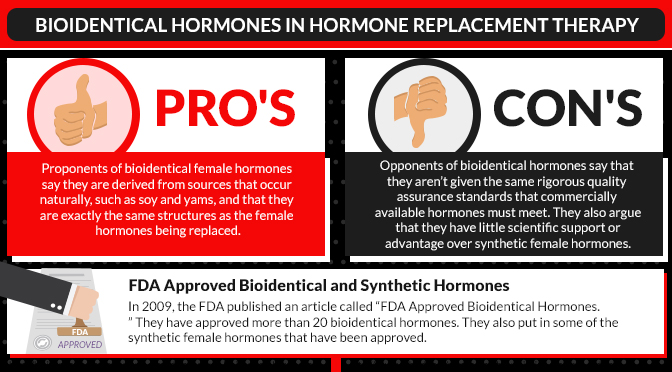
Hormone Replacement Therapy, also called postmenopausal hormone replacement therapy or menopausal hormone replacement therapy, is a type of hormone replacement therapy typically used to treat the effects of hormonal imbalance caused by menopause to treat symptoms related to female menopause symptoms.
Some of these hormonal replacement therapies may involve taking synthetic hormones like those found in synthetic birth control pills
Hormone replacement therapy is not without its side effects. Some of the common side effects of hormone replacement therapy can include weight gain, mood swings, insomnia, headaches, breast tenderness, abdominal bloating, joint pain, muscle aches, and loss of bone density. These are just some of the more common side effects of hormone replacement therapy.
Hormone replacement therapies may also lead to a worsening of preexisting medical conditions. For instance, a woman who has fibromyalgia may be prescribed HRT to relieve the pain caused by her fibromyalgia. While this type of therapy can relieve some of the symptoms of fibromyalgia, it can also make the condition worse in other ways.
In addition, while HRT may provide relief from many symptoms that are commonly associated with menopause, it can have a negative impact on many women's health. HRT, for example, contains estrogens that have been shown to cause breast cancer in women.
HRT also has been known to interfere with progesterone production in the body, which may lead to estrogen-related complications such as osteoporosis and depression. Estrogen is also an anti-androgen, meaning it can lead to an increased risk of breast and prostate cancers.
Because many hormone replacement therapies can interact with certain medications, it is important to discuss any drug interactions before starting a hormone replacement therapy regimen. Also, it is important to read all labels on over-the-counter drugs, prescription and herbal supplements, and herbal remedies before taking them.

HRT is typically not a good idea for women who smoke because the smoke can block the production of hormones in the body. However, HRT can be used as directed if a doctor determines that doing so will help to relieve symptoms associated with menopause in women who are already taking medications designed to help them deal with menopause symptoms.
Hormone treatment should not be used when breast feeding or breastfeeding
While hormone replacement therapy can be a viable option for those who are dealing with symptoms of menopause, women who decide to take HRT must make sure they understand all the possible risks involved. and what the potential side effects might be before they start a hormone replacement therapy regimen.
Besides possible harmful interactions between HRT and certain medications, HRT has also been shown to affect the mental health of women. Some studies show that women who use HRT, including oral contraceptives and testosterone-blocking drugs, have a reduced ability to concentrate and focus on tasks that require visual and auditory tasks. Consequently, hormone replacement therapy Testo Ultra may not be suitable for women who are considering a career change or seeking to become more independent.
Women who use HRT often experience acne and oily skin, both of which are common symptoms of menopause. Hormone replacement therapy, which includes birth control pills, can increase these symptoms and make them worse.
When considering whether or not to take HRT, it's important to ask your doctor about possible side effects, and to learn about all of the health complications that may occur with HRT. Since HRT can affect several systems of the body, it's also important to know about its interactions with any drugs or supplements you are already taking.
Many people are concerned about HRT's effects on their fertility. Because the hormones contained in HRT can affect the production of eggs and sperm, some people worry that HRT may lower a woman's chances of getting pregnant. There is no evidence that this is true.
However, HRT, as well as birth control pills and the combined form of the two, can interfere with the normal function of ovulation in some women. Other women worry that HRT can alter the body's natural production of progesterone in women and may disrupt the delicate balance of estrogen and progesterone in the body.
